Mike Doty
American jazz saxophonist Robert E. "Mike" Doty was born in Zumbro Falls, Minnesota, on February 21, 1906. By the time he was 18 years old, he was already organizing and managing his own jazz and dance bands near Rochester. His band traveled to Fargo, South Dakota, where in 1930 he joined Phil Baxter's band. Baxter's band went west to Tacoma, Washington, where Doty eventually took over leadership of the band for two years. In 1931 Doty joined the Joe Haymes Orchestra in Springfield, Missouri, played in the sax section, did some arrangements for the band, some vocals, and even some recording dates of the Haymes Orchestra under his own name. He stayed with the group after it had been taken over by Buddy Rogers in late 1934, but by the beginning of 1935, Doty left for New York and eventually joined Phil Harris' orchestra and toured briefly with them. Doty joined Ray Noble's orchestra later in 1935 and stayed with him until he joined Tommy Dorsey's Orchestra in March of 1937. After a few brief months with Dorsey (but numerous recordings), Doty joined with Bunny Berigan's band through the remainder of 1937, also recording quite a few sides with Berigan. In 1938 Doty joined Larry Clinton and stayed until March 1939, finishing the year with a tour for Bob Zurke. In the early 1940s Doty did Broadway musicals ("Louisiana Purchase" and "Priorities of 1942") and some substitute dates (including Paul Whiteman), finally settling down into his longest tenure thus far by joining Fred Waring's Pennsylvanians from 1942 until 1956. The next five years he played at the Roxy Theatre in the house orchestra (intermittently substituting at Radio City Music Hall) until he joined Radio City Music Hall full time in the beginning of 1961. He retired from Radio City and full time music in April of 1979. Sometime in the late 1940s Doty began playing the oboe and continued playing double reeds (and all the woodwinds) through the remainder of his career. His tenure with the Roxy Theatre and the Radio City Music Hall exposed him to a much more classical repertoire, and he studied accordingly. At the same time, he took to some composing and wrote a piece for woodwinds, featuring the oboe, called the "Hoboe Simfony," which was performed publicly twice. The composition reflects some links and crossovers between jazz and impressionistic classical music. Sometime also in the late 1940s Doty began taking on students and continued to teach and attend student concerts late into his life until his death on May 31, 1988 at his home in Rochester, Minnesota.
Releases
-
 Jazz In The Charts 40/100 (Something Tells Me 1938 (3))
Jazz In The Charts 40/100 (Something Tells Me 1938 (3))
-
 Jazz In The Charts 35/100 - Have You Got Any Castles, Baby? (1937 (6))
Jazz In The Charts 35/100 - Have You Got Any Castles, Baby? (1937 (6))
-
 Jazz In The Charts 45/100 Jeepers Creepers 1938 - 1939
Jazz In The Charts 45/100 Jeepers Creepers 1938 - 1939
-
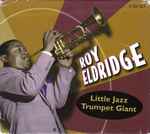 Little Jazz Trumpet Giant
Little Jazz Trumpet Giant
-
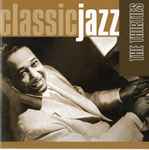 Classic Jazz: The Thirties
Classic Jazz: The Thirties
-
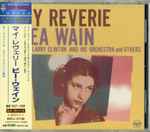 My Reverie
My Reverie
-
 Starting
Starting
-
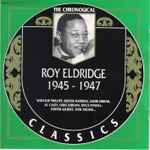 1945-1947
1945-1947
-
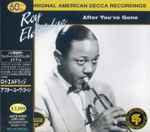 After You've Gone
After You've Gone
-
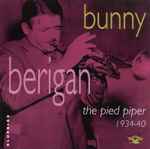 The Pied Piper (1934-40)
The Pied Piper (1934-40)
-
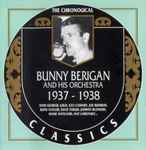 1937-1938
1937-1938
-
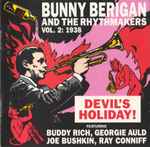 Devil's Holiday, Vol. 2: 1938
Devil's Holiday, Vol. 2: 1938
-
 From This Moment On - The Songs Of Cole Porter
From This Moment On - The Songs Of Cole Porter
-
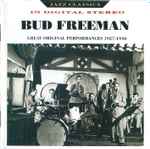 Great Original Performances 1927-1940
Great Original Performances 1927-1940
-
 1937/1939
1937/1939
-
 Volume One: 1936 & 1938 - Sing! Sing! Sing!
Volume One: 1936 & 1938 - Sing! Sing! Sing!
-
 The Complete Bunny Berigan, Volume III
The Complete Bunny Berigan, Volume III
-
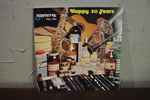 Happy 20 Years
Happy 20 Years
-
 The Complete Bunny Berigan, Volume Two
The Complete Bunny Berigan, Volume Two
-
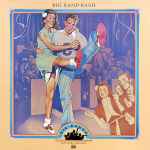 Big Bands: Big Band Bash
Big Bands: Big Band Bash
-
 Big Bands: Big Band Bash
Big Bands: Big Band Bash
-
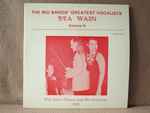 The Big Bands' Greatest Vocalists Volume 4
The Big Bands' Greatest Vocalists Volume 4
-
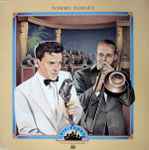 Big Bands: Tommy Dorsey
Big Bands: Tommy Dorsey
-
 The Complete Bunny Berigan, Volume I - 1937
The Complete Bunny Berigan, Volume I - 1937
-
 All The Cats Join In
All The Cats Join In
-
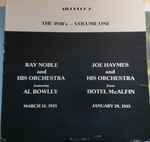 The 1930's - Volume One
The 1930's - Volume One
-
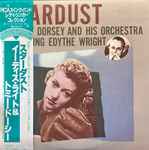 Stardust
Stardust
-
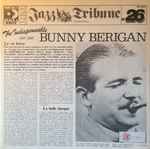 The Indispensable Bunny Berigan
The Indispensable Bunny Berigan
-
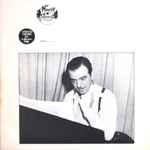 Bob Zurke And His Delta Rhythm Band 1939-40
Bob Zurke And His Delta Rhythm Band 1939-40
-
 I Re Del Jazz
I Re Del Jazz
-
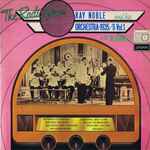 Ray Noble And His Orchestra 1935/6 Vol.1.
Ray Noble And His Orchestra 1935/6 Vol.1.
-
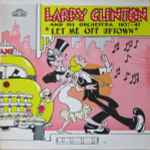 Let Me Off Uptown 1937-41
Let Me Off Uptown 1937-41
-
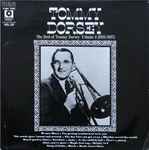 The Best Of Tommy Dorsey Volume 4 (1935/1937)
The Best Of Tommy Dorsey Volume 4 (1935/1937)
-
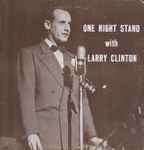 One Night Stand With Larry Clinton
One Night Stand With Larry Clinton
-
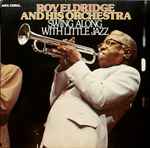 Swing Along With Little Jazz
Swing Along With Little Jazz
-
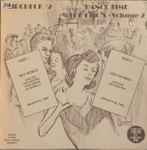 Dance Time The 1930's - Volume 2
Dance Time The 1930's - Volume 2
-
 The Best Of Dorsey Volume 1 (1937-1941)
The Best Of Dorsey Volume 1 (1937-1941)
-
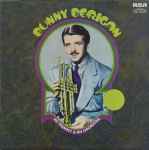 Bunny Berigan - His Trumpet And Orchestra
Bunny Berigan - His Trumpet And Orchestra
-
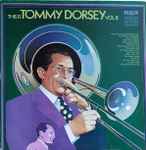 This Is Tommy Dorsey Vol. 2
This Is Tommy Dorsey Vol. 2
-
 This Is The Big Band Era
This Is The Big Band Era
-
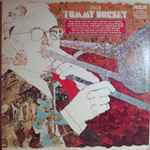 This Is Tommy Dorsey
This Is Tommy Dorsey
-
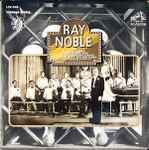 Ray Noble
Ray Noble
-
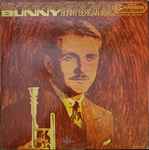 Bunny
Bunny
-
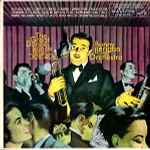 The Great Dance Bands Of The '30s And '40s
The Great Dance Bands Of The '30s And '40s
-
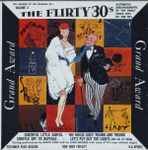 The Flirty 30's - Volume 3
The Flirty 30's - Volume 3
-
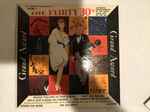 The Flirty 30's - Volume 4
The Flirty 30's - Volume 4
-
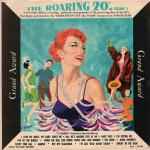 The Roaring 20's Volume 3
The Roaring 20's Volume 3
-
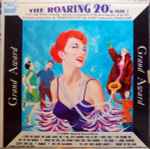 The Roaring 20's Volume 3
The Roaring 20's Volume 3
-
 Bunny Berigan
Bunny Berigan
-
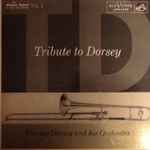 Tribute To Dorsey Volume 1
Tribute To Dorsey Volume 1
 Jazz In The Charts 40/100 (Something Tells Me 1938 (3))
Jazz In The Charts 40/100 (Something Tells Me 1938 (3))
 Jazz In The Charts 35/100 - Have You Got Any Castles, Baby? (1937 (6))
Jazz In The Charts 35/100 - Have You Got Any Castles, Baby? (1937 (6))
 Jazz In The Charts 45/100 Jeepers Creepers 1938 - 1939
Jazz In The Charts 45/100 Jeepers Creepers 1938 - 1939
 Little Jazz Trumpet Giant
Little Jazz Trumpet Giant
 Classic Jazz: The Thirties
Classic Jazz: The Thirties
 My Reverie
My Reverie
 Starting
Starting
 1945-1947
1945-1947
 After You've Gone
After You've Gone
 The Pied Piper (1934-40)
The Pied Piper (1934-40)
 1937-1938
1937-1938
 Devil's Holiday, Vol. 2: 1938
Devil's Holiday, Vol. 2: 1938
 From This Moment On - The Songs Of Cole Porter
From This Moment On - The Songs Of Cole Porter
 Great Original Performances 1927-1940
Great Original Performances 1927-1940
 1937/1939
1937/1939
 Volume One: 1936 & 1938 - Sing! Sing! Sing!
Volume One: 1936 & 1938 - Sing! Sing! Sing!
 The Complete Bunny Berigan, Volume III
The Complete Bunny Berigan, Volume III
 Happy 20 Years
Happy 20 Years
 The Complete Bunny Berigan, Volume Two
The Complete Bunny Berigan, Volume Two
 Big Bands: Big Band Bash
Big Bands: Big Band Bash
 Big Bands: Big Band Bash
Big Bands: Big Band Bash
 The Big Bands' Greatest Vocalists Volume 4
The Big Bands' Greatest Vocalists Volume 4
 Big Bands: Tommy Dorsey
Big Bands: Tommy Dorsey
 The Complete Bunny Berigan, Volume I - 1937
The Complete Bunny Berigan, Volume I - 1937
 All The Cats Join In
All The Cats Join In
 The 1930's - Volume One
The 1930's - Volume One
 Stardust
Stardust
 The Indispensable Bunny Berigan
The Indispensable Bunny Berigan
 Bob Zurke And His Delta Rhythm Band 1939-40
Bob Zurke And His Delta Rhythm Band 1939-40
 I Re Del Jazz
I Re Del Jazz
 Ray Noble And His Orchestra 1935/6 Vol.1.
Ray Noble And His Orchestra 1935/6 Vol.1.
 Let Me Off Uptown 1937-41
Let Me Off Uptown 1937-41
 The Best Of Tommy Dorsey Volume 4 (1935/1937)
The Best Of Tommy Dorsey Volume 4 (1935/1937)
 One Night Stand With Larry Clinton
One Night Stand With Larry Clinton
 Swing Along With Little Jazz
Swing Along With Little Jazz
 Dance Time The 1930's - Volume 2
Dance Time The 1930's - Volume 2
 The Best Of Dorsey Volume 1 (1937-1941)
The Best Of Dorsey Volume 1 (1937-1941)
 Bunny Berigan - His Trumpet And Orchestra
Bunny Berigan - His Trumpet And Orchestra
 This Is Tommy Dorsey Vol. 2
This Is Tommy Dorsey Vol. 2
 This Is The Big Band Era
This Is The Big Band Era
 This Is Tommy Dorsey
This Is Tommy Dorsey
 Ray Noble
Ray Noble
 Bunny
Bunny
 The Great Dance Bands Of The '30s And '40s
The Great Dance Bands Of The '30s And '40s
 The Flirty 30's - Volume 3
The Flirty 30's - Volume 3
 The Flirty 30's - Volume 4
The Flirty 30's - Volume 4
 The Roaring 20's Volume 3
The Roaring 20's Volume 3
 The Roaring 20's Volume 3
The Roaring 20's Volume 3
 Bunny Berigan
Bunny Berigan
 Tribute To Dorsey Volume 1
Tribute To Dorsey Volume 1